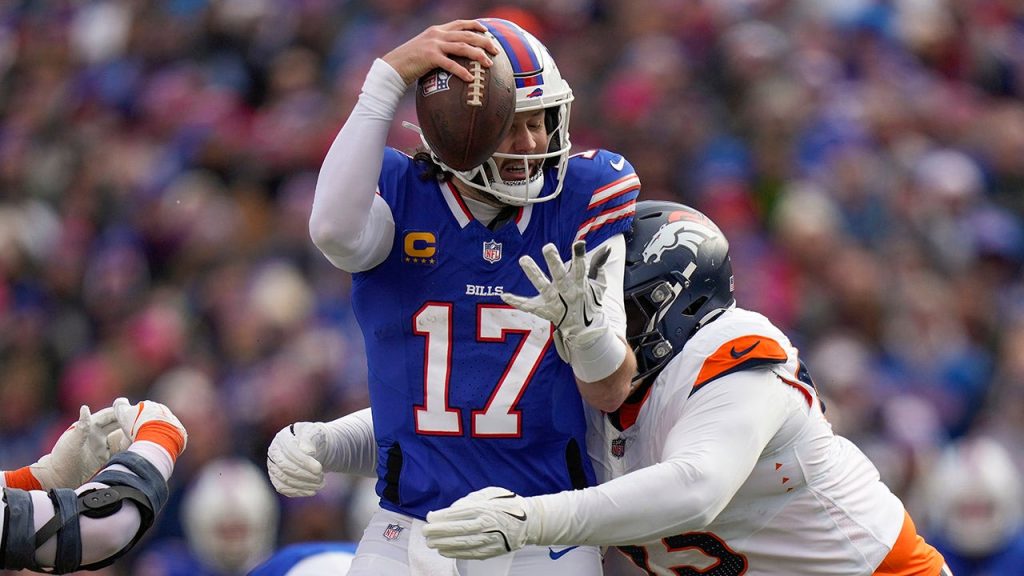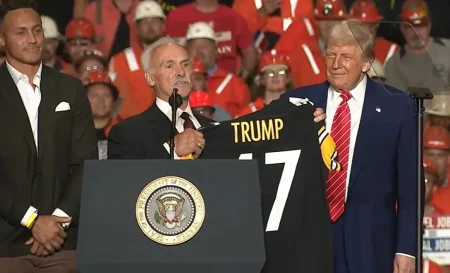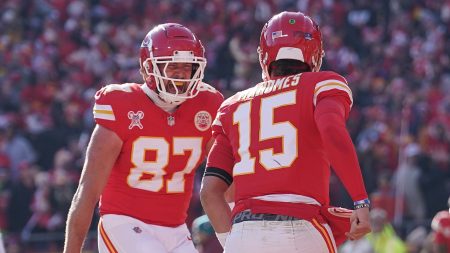The officiating in the NFL, particularly during crucial playoff games, is often subject to intense scrutiny, as every call can significantly impact the outcome. The recent wild-card matchup between the Buffalo Bills and the Denver Broncos provided a prime example of this scrutiny, with a missed holding call in the end zone drawing the ire of fans and raising questions about the consistency of officiating. The play in question occurred in the third quarter, shortly after halftime, with the Bills driving deep into Broncos territory. Facing a third down situation and within striking distance of a touchdown, quarterback Josh Allen was forced to take a sack, unable to find an open receiver. Replays revealed that Bills tight end Dalton Kincaid was seemingly held in the end zone by Broncos defensive back Patrick Surtain II, preventing him from being a viable target for Allen. Despite the apparent infraction, no flag was thrown, forcing the Bills to settle for a field goal, extending their lead to only six points instead of potentially adding seven.
The missed call immediately sparked outrage among Bills fans and ignited discussions about the influence of officiating on the game’s outcome. This close scoring margin further amplified the significance of the missed penalty. Had the hold been called, the Bills would have received a fresh set of downs at the one-yard line, significantly increasing their chances of scoring a touchdown. Instead, the field goal left the door open for a potential Broncos comeback, adding a layer of tension to the remainder of the game. While the Bills ultimately secured the victory, the missed call became a focal point of post-game analysis and fueled debate about the need for improved officiating consistency, especially in high-stakes playoff games.
The incident also highlighted the challenges faced by NFL referees. The game is fast-paced and complex, requiring split-second decisions on intricate rules. While the use of instant replay has improved the accuracy of calls, certain judgment calls, like holding penalties, remain subjective and can be difficult to assess definitively in real-time. In this specific instance, the referee may have been obstructed from a clear view of the hold, or may have deemed it insufficient to warrant a flag. However, the replays strongly suggested otherwise, leading to the widespread criticism.
The discussion surrounding this missed call extends beyond this particular game, highlighting a broader concern about the impact of officiating on the integrity of the NFL playoffs. Fans argue that such crucial games demand the highest level of officiating accuracy, as even seemingly minor calls can have a significant impact on the final outcome and determine which teams advance. The missed holding call on Surtain served as a reminder of the potential for human error in officiating and the need for constant review and improvement of officiating practices.
Furthermore, the incident underscored the evolving nature of the tight end position in the modern NFL. Tight ends like Dalton Kincaid are increasingly used as receiving threats, often operating in similar ways to wide receivers. This shift places greater emphasis on defending them effectively, and consequently, calls related to holding and pass interference become increasingly important. The missed call on Surtain highlighted the need for referees to be attuned to these evolving offensive strategies and to enforce the rules consistently to ensure fair play. The close nature of the game and the potential impact of the missed call on the outcome emphasized the importance of accurate officiating in the playoffs.
In the aftermath of the game, head referee Bill Vinovich was seen conversing with Josh Allen before the Bills attempted the field goal. While the content of their conversation remains unknown, it likely involved some explanation or clarification regarding the non-call. However, such conversations, although potentially offering insight into the referee’s perspective, rarely satisfy fans or players who believe a crucial call was missed. The incident served as a reminder of the intense pressure NFL officials face, especially in the playoffs, and the ongoing debate surrounding the efficacy and consistency of officiating in professional football. The demand for improved officiating accuracy and transparency remains a prominent topic of discussion among fans and analysts alike.










